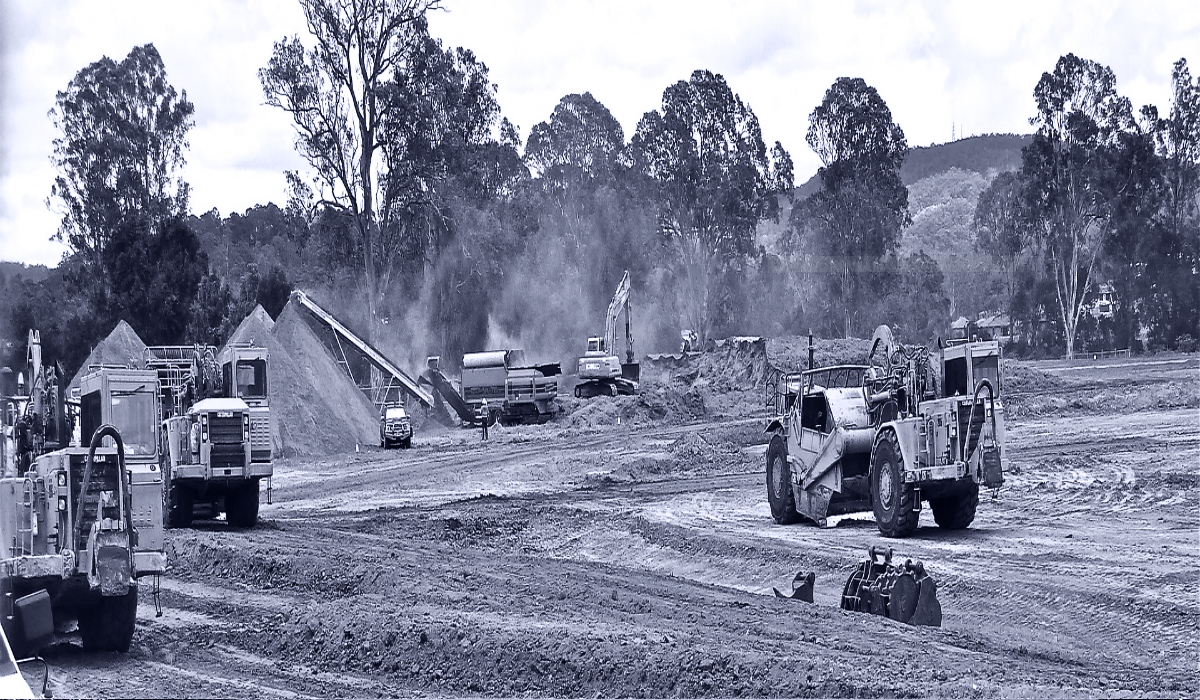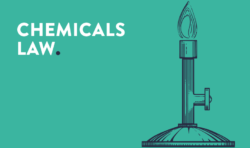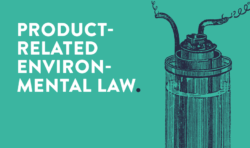After the EU Commission presented OMNIBUS I and II packages in February 2025 (see our blog post OMNIBUS initiative and possible adjustments to the LkSG), it followed up with packages III and IV in May 2025. The new packages are all about ‘simplification.’ While Package III focuses on the Common Agricultural Policy and is not covered in this article due to its lack of relevance to product law, Package IV proposes a new category of companies and related simplifications. In addition, the EU Commission wants to digitise the fulfilment of product-related obligations. Although not part of the OMNIBUS initiative but not less prominent, the EU Commission published a revised version of the guidelines and FAQs on the Deforestation Regulation in mid-April. This was followed on 20.05.2025 by the long-awaited ‘country benchmarking’, which assigns a deforestation risk to the countries of origin of the raw materials covered by the EUDR.
This article provides an overview of the intended changes in the OMNIBUS IV package (see A.), explains the implications of the updates to the EUDR (see B.) and concludes with an interim assessment of the EU Commission’s approach following the first four OMNIBUS packages (see C.).
A. OMNIBUS IV package
The OMNIBUS IV package comprises a total of five draft amendments:
- COM(2025) 501 final
- COM(2025) 502 final (not relevant to product law)
- COM(2025) 503 final
- COM(2025) 504 final
- COM(2025) 258 final
In addition to draft amendments to a large number of regulations and directives, the EU Commission has submitted a proposal for the definition of ‘small mid-cap enterprises’ (SMC) in Recommendation C(2025)3500.
According to the recommendation, SMCs are defined as enterprises that
- are not small or medium-sized enterprises within the meaning of Recommendation 2003/361/EC,
- employ fewer than 750 persons, and
- have an annual turnover not exceeding EUR 150 million or an annual balance sheet total not exceeding EUR 129 million.
By introducing SMCs, the EU Commission intends to exempt a larger number of economic operators from regulatory obligations. Against this background, SMCs are to be subject to similar or even the same simplifications as small and medium-sized enterprises (SMEs) for a number of legal acts in future.
The proposed amendments to product-related regulations and directives are outlined below for individual legal acts or groups of legal acts.
I. EU Battery Regulation (Regulation (EU) 2023/1542)
Amendments to the Battery Regulation are provided for in the draft amendments COM(2025) 501 final, COM(2025) 504 final and COM (2025) 258 final. These are as follows:
- Postponement of the scope of application: The EU Commission proposes an amendment to Art. 48(1) Battery Regulation. According to this, the due diligence obligations laid down in Art. 48(2), (3) and Art. 49, 50, 52 Battery Regulation shall only apply on 18 August 2027, two years later than previously planned.
- Simplification for SMCs: The exemption of SMEs from the due diligence obligations under Art. 47 of the Battery Regulation is to be extended to SMCs.
- Reduced disclosure requirements: Economic operators who are required to fulfil due diligence obligations under Art. 47 et seq. Battery Regulation will in future only have to review their strategy and publish it on the internet every three years instead of annually (amendment to Art. 52(3) Battery Regulation).
- Mandatory online communication: In future, certain information must be provided in digital format and contact with the authorities must take place digitally. As these changes apply to a large number of regulations and directives, they are presented in detail below under B.III.
II. Regulation on fluorinated greenhouse gases (Regulation (EU) 2024/573)
Amendments to the Regulation on fluorinated greenhouse gases (“F-Gas Regulation”) are provided for in the draft amendment COM(2025)501 final. For the import or export of products and equipment containing fluorinated greenhouse gases, registration in the F-Gas Portal is currently required under Article 20 of the F-Gas Regulation. This applies regardless of whether the products and equipment are subsequently subject to further obligations or restrictions under the F-Gas Regulation, which means a high administrative burden to comply with the extensive registration requirements. For this reason, the EU Commission wants to limit registration as a prerequisite for import and export to the following cases:
- Import and export of fluorinated greenhouse gases
- Placing on the market of products and equipment that must be reported in accordance with Art. 26 F-Gas Regulation
- Export of products and equipment in accordance with Art. 22(3) F-Gas Regulation whose function depends on fluorinated greenhouse gases with a global warming potential of ≥1000, from the date of prohibition in accordance with Annex IV F-Gas Regulation.
According to the EU Commission, the changes mean that many SMEs and SMCs will no longer be subject to the registration requirement under Art. 20 F-Gas Regulation.
III. Amendments to various product-related legal acts
With the proposed amendment COM(2025) 503 final, which refers to various directives, and the proposed amendment COM(2025) 504 final, which in turn refers to various regulations, the EU Commission is proposing a series of digitisation measures. This covers in particular the provision of certain product-related information and the exchange of this information with the competent authorities. The following legal acts are affected:
- RoHS Directive (Directive (2011/65/EU)
- Electromagnetic Compatibility Directive (Directive 2014/30/EU)
- Low Voltage Directive (Directive 2014/35/EU)
- Radio Equipment Directive (Directive 2014/53/EU)
- Pressure Equipment Directive (Directive 2014/68/EU)
- Battery Regulation (Regulation (EU) 2023/1542)
- Ecodesign Regulation (Regulation (EU) 2024/1781)
The following adjustments are proposed:
- If an EU declaration of conformity or similar document must be included with a product, it must be produced in electronic format and made available via an internet address or a machine-readable code.
- Every manufacturer must provide a ‘digital contact’ on products placed on the market. A corresponding obligation to provide an electronic address has been in force since 13.12.2024 for non-harmonised consumer products (without ‘CE’). This extended labelling requirement is enshrined in Art. 9(6) Regulation (EU) 2023/988 (the EU Product Safety Regulation or GPSR), i.e. in the manufacturer’s obligations. Electronic addresses have also been implemented for other labelling requirements in the GPSR. In addition, mandatory digital communication between economic operators on the one hand and national authorities on the other is to be introduced in the future. As soon as the ‘European Business Wallet’ is available, the digital address provided there will constitute the ‘digital contact’.
- Operating instructions for products may, with the exception of safety instructions, also be made available exclusively in digital form in future.
- Reporting obligations to national authorities, which could previously also be fulfilled in analogue form, may only be fulfilled digitally in future.
- In future, general specifications are to be used more frequently instead of harmonised standards.
- An obligation is to be introduced to store information from the EU declaration of conformity on the digital product passport (DPP) if a DPP is required under another regulation.
As shown, the changes proposed by the OMNIBUS IV package are comprehensive. It will be interesting to see to what extent the proposals on digitalisation will be accepted and can pave the way for a transition to the ‘European Business Wallet’. Affected companies should also pay particular attention, as some legal acts, such as the Battery Regulation, are dealt with in several draft amendments and are therefore subject to different legislative procedures.
B. Update on the EU Deforestation Regulation (Regulation (EU) 2023/1115)
According to Art. 29 Regulation (EU) 2023/1115 (EUDR), the EU Commission is to carry out a risk assessment of countries or parts of countries. The assessment relates to the risk that a relevant product listed in Annex I EUDR from the territory concerned violates the prohibition of deforestation under Art. 3(a) EUDR. A distinction is made between three categories:
a. high risk
b. standard risk
c. low risk
The classification of a country or parts thereof has two effects. On the one hand, according to Art. 13 EUDR, in the case of a low risk, reduced due diligence obligations apply to market participants (Art. 2(15) EUDR) and traders (Art. 2(17) EUDR). Subject to an assessment of the risk of circumvention of the Regulation, the obligations under Art. 10 EUDR (risk assessment) and Art. 11 EUDR (risk mitigation) do not have to be fulfilled. However, this means, conversely, that the obligations to obtain information under Art. 9 EUDR and, in particular, to draw up and submit a due diligence declaration remain in place even in the case of a low risk without exception. On the other hand, the frequency of checks by the competent authorities depends on the classification. While in the case of high risk, 9% of market participants who place relevant products on the market or make them available on the market must be checked each year, in the case of standard and low risk, the figures are 3% and 1% of market participants, respectively, cf. Art. 16(8)-(10) EUDR.
The long-awaited categorisation by Implementing Regulation (EU) 2025/1093 now qualifies four countries as high risk (Belarus, Myanmar, North Korea and Russia) and 140 countries (including all 27 EU Member States) as low risk. This classification has been met with some criticism, as the threshold for assuming a high risk has been set very high. This contradicts many reports on deforestation in countries such as Brazil, Indonesia and the Democratic Republic of Congo, which continue to be classified as ‘standard risk’ because all unlisted countries are automatically assigned to the ‘standard risk’ category. However, according to Art. 29(2) of the EUDR, the list is to be reviewed on an ongoing basis and adjusted as necessary.
In addition to country benchmarking, the EU Commission has again updated the guidelines on the EUDR and the FAQs. The following updates are particularly noteworthy:
- Wood or paper packaging that constitutes a relevant product under Annex I EUDR is not covered by the EUDR if it is only used to support or protect another product. In this case, they function primarily as packaging. However, they are subject to the EUDR in exceptional cases if their supporting and protective function gives the other product its essential character and they can therefore no longer be classified as mere packaging, see No. 2.5 FAQ.
- Pursuant to Art. 4(9) EUDR, market participants may, when submitting their due diligence declarations, refer to the reference numbers of due diligence declarations that other market participants have already submitted to the information system in relation to the relevant product. This requires a review of the declarations previously submitted. The obligation to “ascertain” that due diligence was exercised in line with the EUDR has now been specified to mean that it refers to the verification of the validity of the respective reference numbers, see No. 3.4 FAQ. Deeper investigations may nevertheless be useful in individual cases, as responsibility for compliance with the requirements under Art. 3 EUDR continues to exist, see Art. 4(10) EUDR.
- Members of a group of companies may authorise one of their members to submit the due diligence declarations for all members of the group. Although each member of a group of companies remains subject to the Regulation, the submission of the due diligence declaration can now be bundled, see No. 3.13 FAQ.
- A single due diligence declaration may cover a large number of batches and relevant products in advance in accordance with Art. 4(2) EUDR. It should not exceed batches for a period of one year and should only include products that already exist at the time of submission. However, depending on the supply chain and product, it may be advisable to submit several due diligence declarations to ensure that all products placed on the market are actually covered by a declaration, see No. 5.19 FAQ.
In addition to the EU Commission, the Federal Office for Agriculture and Food published FAQs on 14.05.2025, which clarify a number of issues and should be consulted in particular by German companies.
Interim conclusion on current EU legislative procedures
The current pace at which the EU Commission is initiating new legislative procedures may be driven by a desire to demonstrate its ability to act in crises. However, if this comes at the expense of quality and creates legal uncertainty for the companies affected, this demonstration will unfortunately not be successful. The dilemma is particularly evident in short-term postponements of the date of application of legal acts, such as the EUDR at the end of 2024 and now the due diligence obligations under the Battery Regulation. Even if the intention behind this is to protect companies from excessive burdens, such actions tend to give the impression of an overwhelmed EU that is unable to provide clear regulations and appropriate guidelines from the outset. This damages the image of a European legal community in which legal certainty and clarity are supposed to prevail. Against this backdrop, we can only appeal to legislators to provide companies with more support in implementing the adopted legislation rather than hastily proposing supposed simplifications.
Do you have any questions or would you like to discuss the news with the author? Please contact Michael Öttinger and Paul Jäde.






